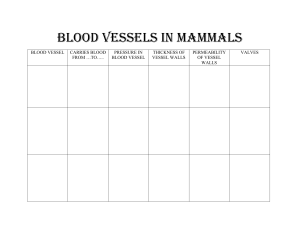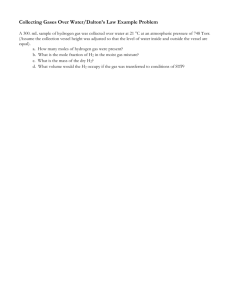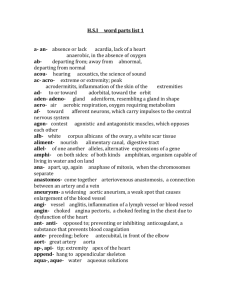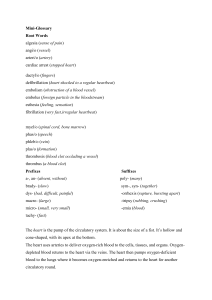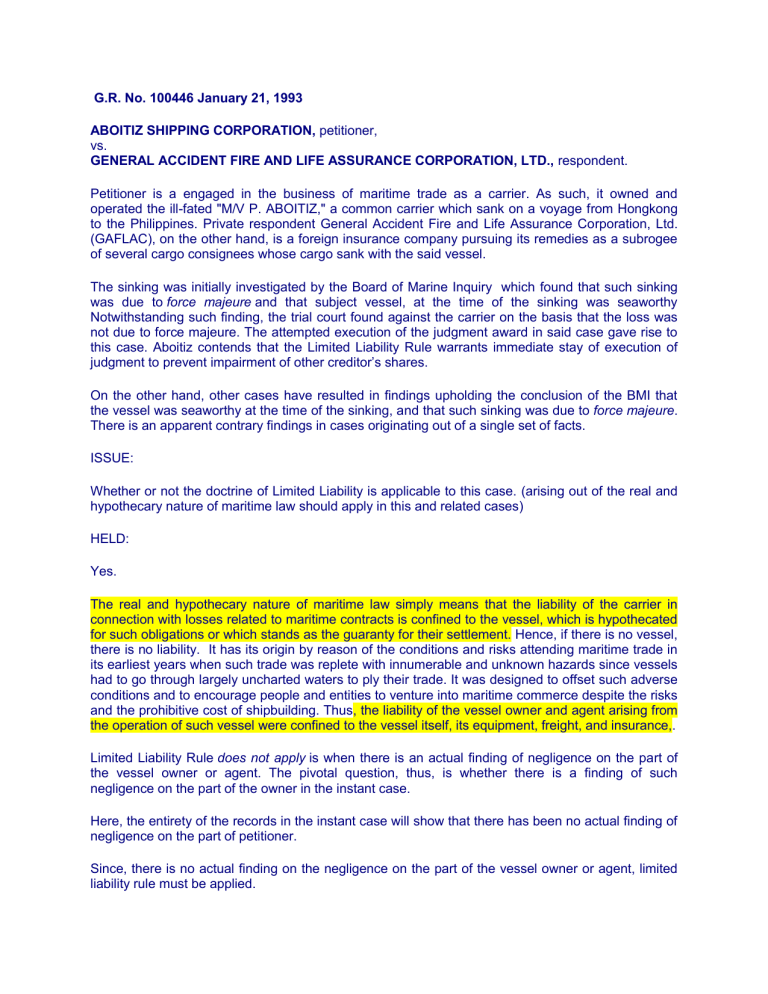
G.R. No. 100446 January 21, 1993 ABOITIZ SHIPPING CORPORATION, petitioner, vs. GENERAL ACCIDENT FIRE AND LIFE ASSURANCE CORPORATION, LTD., respondent. Petitioner is a engaged in the business of maritime trade as a carrier. As such, it owned and operated the ill-fated "M/V P. ABOITIZ," a common carrier which sank on a voyage from Hongkong to the Philippines. Private respondent General Accident Fire and Life Assurance Corporation, Ltd. (GAFLAC), on the other hand, is a foreign insurance company pursuing its remedies as a subrogee of several cargo consignees whose cargo sank with the said vessel. The sinking was initially investigated by the Board of Marine Inquiry which found that such sinking was due to force majeure and that subject vessel, at the time of the sinking was seaworthy Notwithstanding such finding, the trial court found against the carrier on the basis that the loss was not due to force majeure. The attempted execution of the judgment award in said case gave rise to this case. Aboitiz contends that the Limited Liability Rule warrants immediate stay of execution of judgment to prevent impairment of other creditor’s shares. On the other hand, other cases have resulted in findings upholding the conclusion of the BMI that the vessel was seaworthy at the time of the sinking, and that such sinking was due to force majeure. There is an apparent contrary findings in cases originating out of a single set of facts. ISSUE: Whether or not the doctrine of Limited Liability is applicable to this case. (arising out of the real and hypothecary nature of maritime law should apply in this and related cases) HELD: Yes. The real and hypothecary nature of maritime law simply means that the liability of the carrier in connection with losses related to maritime contracts is confined to the vessel, which is hypothecated for such obligations or which stands as the guaranty for their settlement. Hence, if there is no vessel, there is no liability. It has its origin by reason of the conditions and risks attending maritime trade in its earliest years when such trade was replete with innumerable and unknown hazards since vessels had to go through largely uncharted waters to ply their trade. It was designed to offset such adverse conditions and to encourage people and entities to venture into maritime commerce despite the risks and the prohibitive cost of shipbuilding. Thus, the liability of the vessel owner and agent arising from the operation of such vessel were confined to the vessel itself, its equipment, freight, and insurance,. Limited Liability Rule does not apply is when there is an actual finding of negligence on the part of the vessel owner or agent. The pivotal question, thus, is whether there is a finding of such negligence on the part of the owner in the instant case. Here, the entirety of the records in the instant case will show that there has been no actual finding of negligence on the part of petitioner. Since, there is no actual finding on the negligence on the part of the vessel owner or agent, limited liability rule must be applied. In its Decision, the trial court merely held that: . . . Considering the foregoing reasons, the Court holds that the vessel M/V "Aboitiz" and its cargo were not lost due to fortuitous event or force majeure." (p. 32, Rollo) Indeed, there appears to have been no evidence presented sufficient to form a conclusion that petitioner shipowner itself was negligent, and no tribunal, including this Court will add or subtract to such evidence to justify a conclusion to the contrary. On this point, it should be stressed that unseaworthiness is not a fault that can be laid squarely on petitioner's lap, absent a factual basis for such a conclusion. The unseaworthiness found in some cases where the same has been ruled to exist is directly attributable to the vessel's crew and captain, more so on the part of the latter since Article 612 of the Code of Commerce provides that among the inherent duties of a captain is to examine a vessel before sailing and to comply with the laws of navigation. In both insolvency of a corporation and the sinking of a vessel, the claimants or creditors are limited in their recovery to the remaining value of accessible assets. In the case of an insolvent corporation, these are the residual assets of the corporation left over from its operations. In the case of a lost vessel, these are the insurance proceeds and pending freightage for the particular voyage. In the instant case, there is, therefore, a need to collate all claims preparatory to their satisfaction from the insurance proceeds on the vessel M/V P. Aboitiz and its pending freightage at the time of its loss. No claimant can be given precedence over the others by the simple expedience of having filed or completed its action earlier than the rest. Thus, execution of judgment in earlier completed cases, even those already final and executory, must be stayed pending completion of all cases occasioned by the subject sinking. Then and only then can all such claims be simultaneously settled, either completely or pro-rata should the insurance proceeds and freightage be not enough to satisfy all claims. PRINCIPLE/S: 1) Real and hypothecary nature of maritime law meaning The liability of the carrier in connection with losses related to maritime contracts is confined to the vessel, which is hypothecated for such obligations or which stands as guaranty for their settlement. Thus, the liability of the vessel owner and agent arising from the operation of such vessel were confined to the vessel itself, its equipment, freight, and insurance, if any, which limitation served to induce capitalists into effectively wagering their resources against the consideration of the large profits attainable in the trade. 2) Origins of real and hypothecary nature It has its origin by reason of the conditions and risks attending maritime trade in its earliest years when such trade was replete with innumerable and unknown hazards since vessels had to go through largely uncharted waters to ply their trade. It was designed to offset such adverse conditions and to encourage people and entities to venture into maritime commerce despite the risks and the prohibitive cost of shipbuilding. 3) Rights of a vessel owner or agent under the Limited Liability Rule are akin to those of the rights of shareholders to limited liability under our corporation law. Both are privileges granted by statute, and while not absolute, must be swept aside only in the established existence of the most compelling of reasons 4) Rights of parties to claim against an agent or owner of a vessel may be compared to those of creditors against an insolvent corporation whose assets are not enough to satisfy the totality of claims against it. · Each individual creditor may prove the actual amount of their respective claims but this does not mean that they shall be allowed to recover fully. · The claimants or creditors are limited in their recovery to the remaining value of accessible assets. o Insolvent corporation - residual assets of the corporation left over from its operations o Lost vessel - insurance proceeds and pending freightage for the particular voyage · No claimant can be given precedence over the others by the simple expedience of having filed or completed its action than the rest. · Execution of judgment must be stayed pending completion of all cases occasioned by the subject sinking. o Pro-rated share of each claim can only be found after all the cases shall have been decided. 5) GR: Once a decision becomes final and executory, it is the ministerial duty of the court to order its execution Exceptions: a) Special and exceptional nature where it becomes the imperative in the higher interest of justice to direct the suspension of its execution (Vecine v. Geronimo, 59 OG 579); b) Whenever it is necessary to accomplish the aims of justice (Pascual v Tan, 85 Phil. 164); c) When certain facts and circumstances transpired after the judgment became final which would render the execution of the judgment unjust (Cabrias v. Adil, 135 SCRA 354). (at p. 201) NOTES: The limited liability settled in G.R. No. 88159 is that which attaches to cargo by virtue of stipulations in the Bill of Lading, popularly known as package limitation clauses, which in that case was contained in Section 8 of the Bill of Lading and which limited the carrier's liability to US$500.00 for the cargo whose value was therein sought to be recovered. Said resolution did not tackle the matter of the Limited Liability Rule arising out of the real and hypothecary nature of maritime law, which was not raised therein, and which is the principal bone of contention in this case. While the matters threshed out in G.R. No. 88159, particularly those dealing with the issues on primary administrative jurisdiction and the package liability limitation provided in the Bill of Lading are now settled and should no longer be touched, the instant case raises a completely different issue. It appears, therefore, that the resolution in G.R. 88159 adverted to has no bearing other than factual to the instant case. The rule that once a decision becomes final and executory, it is the ministerial duty of the court to order its execution, admits of certain exceptions as in cases of special and exceptional nature where it becomes the imperative in the higher interest of justice to direct the suspension of its execution (Vecine v. Geronimo, 59 OG 579); whenever it is necessary to accomplish the aims of justice (Pascual v Tan, 85 Phil. 164); or when certain facts and circumstances transpired after the judgment became final which would render the execution of the judgment unjust (Cabrias v. Adil, 135 SCRA 354). (at p. 201) As discussed earlier, the "limited liability" in issue before the trial courts referred to the package limitation clauses in the bills of lading and not the limited liability doctrine arising from the real and hypothecary nature of maritime trade. The Limited Liability Rule in the Philippines is taken up in Book III of the Code of Commerce, particularly in Articles 587, 590, and 837, hereunder quoted in toto: Art. 587. The ship agent shall also be civilly liable for the indemnities in favor of third persons which may arise from the conduct of the captain in the care of the goods which he loaded on the vessel; but he may exempt himself therefrom by abandoning the vessel with all her equipment and the freight it may have earned during the voyage. Art. 590. The co-owners of a vessel shall be civilly liable in the proportion of their interests in the common fund for the results of the acts of the captain referred to in Art. 587. Each co-owner may exempt himself from this liability by the abandonment, before a notary, of the part of the vessel belonging to him. Art. 837. The civil liability incurred by shipowners in the case prescribed in this section (on collisions), shall be understood as limited to the value of the vessel with all its appurtenances and freightage served during the voyage. (Emphasis supplied) Taken together with related articles, the foregoing cover only liability for injuries to third parties (Art. 587), acts of the captain (Art. 590) and collisions (Art. 837). The rights of a vessel owner or agent under the Limited Liability Rule are akin to those of the rights of shareholders to limited liability under our corporation law. Both are privileges granted by statute, and while not absolute, must be swept aside only in the established existence of the most compelling of reasons. In the absence of such reasons, this Court chooses to exercise prudence and shall not sweep such rights aside on mere whim or surmise, for even in the existence of cause to do so, such incursion is definitely punitive in nature and must never be taken lightly. More to the point, the rights of parties to claim against an agent or owner of a vessel may be compared to those of creditors against an insolvent corporation whose assets are not enough to satisfy the totality of claims as against it. While each individual creditor may, and in fact shall, be allowed to prove the actual amounts of their respective claims, this does not mean that they shall all be allowed to recover fully thus favoring those who filed and proved their claims sooner to the prejudice of those who come later. In such an instance, such creditors too would not also be able to gain access to the assets of the individual shareholders, but must limit their recovery to what is left in the name of the corporation.

